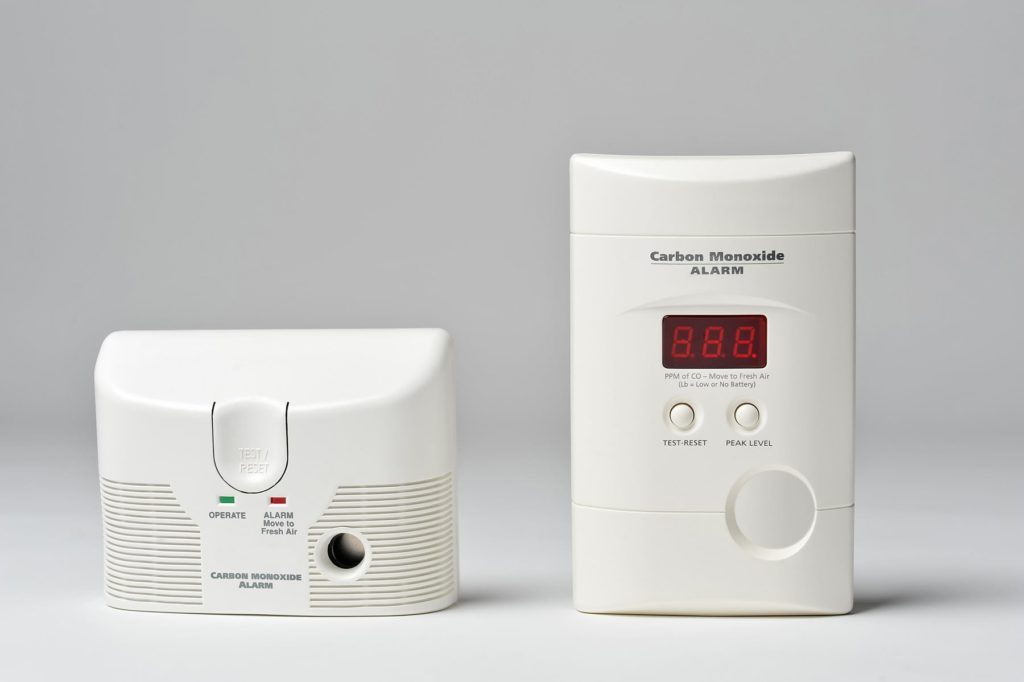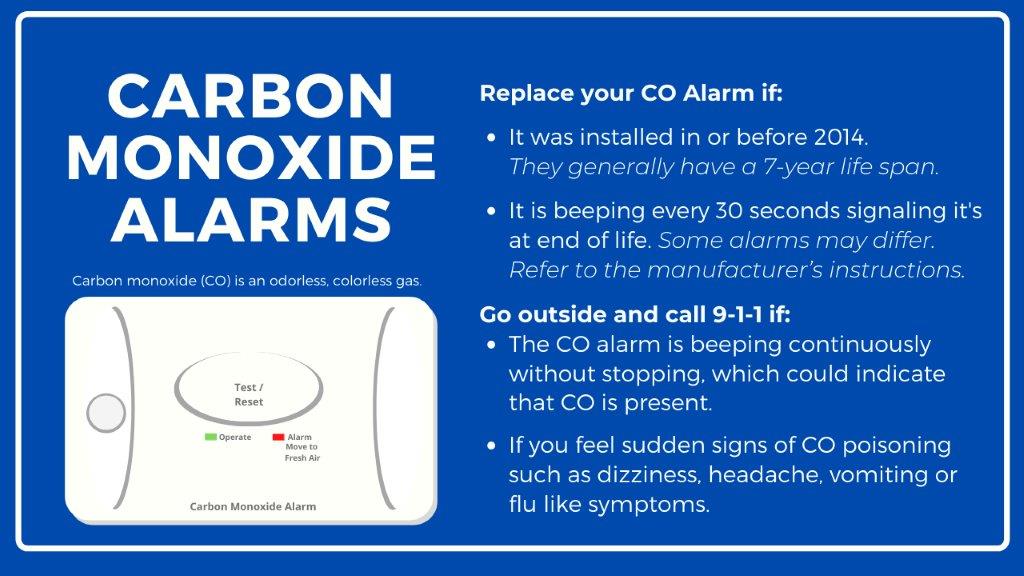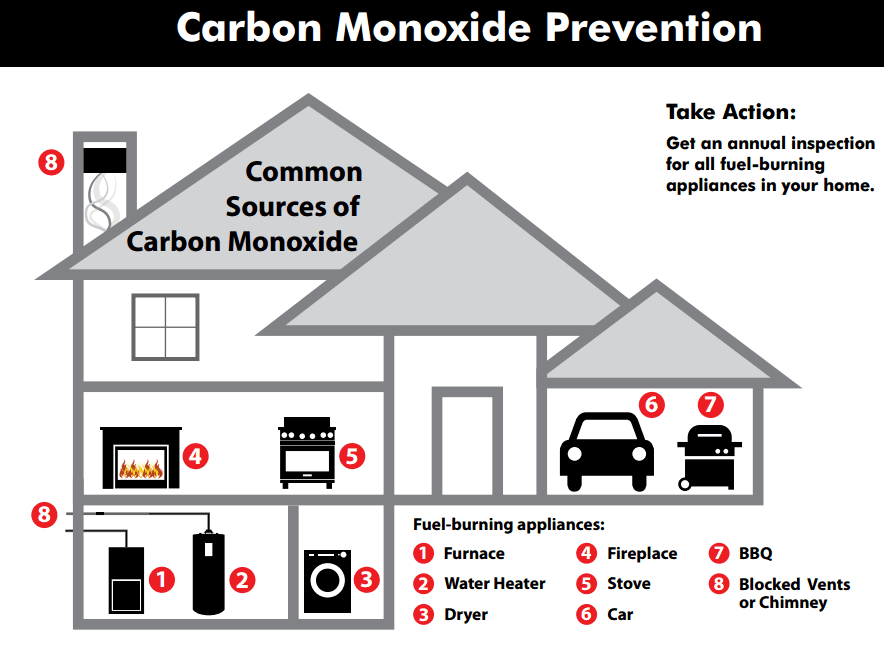

Last year, the Seattle Fire Department received many 9-1-1 calls from concerned residents because of chirping carbon monoxide (CO) alarms. While it’s important to call 9-1-1 if your CO alarm is sounding continuously without stopping, a CO alarm that chirps every 30 seconds is not an emergency. Most likely, it’s an indication that your CO alarm has reached its end of life and should be replaced.

CO alarm life span
CO alarms have a life expectancy of around seven years. All CO alarms produced after August 1, 2009, have an end-of-life warning notification that alerts the resident that the alarm should be replaced. The CO alarm will beep every 30 seconds or display ERR or END.
If a CO alarm is at its end-of-life, replacing the battery will not stop the beep. Some CO alarms have a feature that will silence the signal for 30 days, but this will not solve the issue as the CO alarm will continue to beep after the 30 day period ends.

Replace carbon monoxide alarms installed in or before 2014
What people should know
In January of 2013, Washington State law (RCW 19.27.530) required CO alarms to be installed in new residences and in existing rental properties. Owner-occupied single-family residences, legally occupied before July 26, 2009, are not required to have CO alarms until they are sold or when a building permit application for interior remodeling is submitted.
Homeowners should consider replacing all CO alarms that were installed in or before 2014. A CO alarm that signals that it’s at the end of its life should be replaced as well.
Renters should notify property managers or landlords immediately if their CO alarm is beeping every 30 seconds indicating its end-of-life. They should also know that intermittent beeping CO alarm is not reason to call 9-1-1.
A CO alarm that beeps continuously without stopping could indicate that carbon monoxide is present. If you your CO alarm is sounding continuously and you have signs of CO poisoning such as dizziness, headache, vomiting or flu like symptoms, find fresh air and call 9-1-1 immediately.
More information on carbon monoxide alarm requirements
Seattle Fire Department’s CAM 5121 Carbon Monoxide Alarm Requirements in Residential Occupancies
